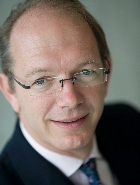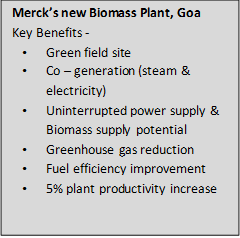- Merck kicks off June 25 as Maharashtra Merck Diabetes Day- MDD in collaboration with Ministry of Public Health and Family Welfare of Maharashtra.
- Merck joins hands with Maharashtra University of Health Sciences (MUHS) and Directorate of Medical Education and Research (DMER) to celebrate the success of the first year of Merck Capacity Advancement Program in India.
- Merck supports medical education for more than 5,000 medical students and free Diabetes screening for more than 20,000 community members In Maharashtra.
Mumbai, India, June 25, 2015 – Merck, a leading company for innovative and top-quality high-tech products in the pharmaceutical, chemical and life-science sectors, rolls out today Merck Diabetes Day- MDD in collaboration with Maharashtra University of Health Sciences (MUHS) and Ministry of Public Health and Family Welfare of Maharashtra Government in order to provide diabetes free screening and education for more than 20,000 community members at the 18 medical colleges of MUHS as part of Merck Capacity Advancement Program.
 The Maharashtra Merck Diabetes Day- MDD will be rolled out across India and Africa to raise public awareness about Diabetes early detection and prevention aiming to reverse this worrying trend by preventing or delaying the development of diabetes in the African and Indian population as part of Merck Corporate Social Responsibility Agenda.
The Maharashtra Merck Diabetes Day- MDD will be rolled out across India and Africa to raise public awareness about Diabetes early detection and prevention aiming to reverse this worrying trend by preventing or delaying the development of diabetes in the African and Indian population as part of Merck Corporate Social Responsibility Agenda.
On the same day, Merck in collaboration with Maharashtra University of Health Sciences will also celebrate the success of the first year of Merck Capacity Advancement Program in India. More than 5000 medical undergraduates and healthcare providers have benefited from the European accredited Clinical Diabetes Management course in 2015. The program aims to target more than 25,000 students in India in the next five years.
During Maharashtra Merck Diabetes Day, Dr Frank Stangenberg Haverkamp, The Chairman of Executive Board and Family Board of E. Merck KG stated “We are pleased to engage with the Ministry of Public Health and Family Welfare, Directorate of Medical Education and Research (DMER) and Maharashtra University of Health Sciences to improve access to better Diabetes Care as part of our commitment to the social and economic development of India. Supporting the Diabetes education and community outreach programs of the University will contribute significantly to improving awareness, early diagnosis and prevention of the disease across India”.
The rising numbers of diabetics all over the world calls for prioritizing diabetes care and awareness to prevent the disease from turning into an epidemic. The Merck Capacity Advancement Program seeks to improve the healthcare sector in India with special focus on rural areas through educating and empowering those affected by diabetes on how to manage and prevent it.
Rasha Kelej. Vice president and head of Global Business Responsibility and Market Development at Merck Serono, 
biopharmaceutical business of Merck emphasized at the event “In India, there is a significant increase in the burden of non- communicable diseases, including diabetes. There is clear evidence to show that diabetes prevalence is rapidly increasing, especially in urban India. The conventional risk factors of urbanization, unhealthy eating habits and physical inactivity, coupled with inherent genetic attributes and differences in body composition are propelling the increase in cases of diabetes. Accordingly, diabetes related complications are also on the rise and contribute significantly to overall morbidity and mortality. It was clear for us from the start that improvement of the levels of education and awareness of the disease will reduce its impact on health of the Indian population.”
Prof. Arun Jamkar, Vice Chancellor of Maharashtra University of Health Sciences, MUHS emphasized “Today we are happy to celebrate the success of the first year of the program. We have successfully engaged the stakeholders in the field of medicine and diabetes in Maharashtra In  joint collaboration with DMER and Merck to implement their Capacity Advancement Program, this Diabetes education and awareness program aim to provide awareness, guidelines and clinical practice for prevention, diagnosis and management of diabetes and its complications for Maharashtra community members and medical undergraduates of the 18 medical colleges in Maharashtra university.”
joint collaboration with DMER and Merck to implement their Capacity Advancement Program, this Diabetes education and awareness program aim to provide awareness, guidelines and clinical practice for prevention, diagnosis and management of diabetes and its complications for Maharashtra community members and medical undergraduates of the 18 medical colleges in Maharashtra university.”
Hon. Dr. Deepak R. Sawant Minister of Public Health and Family Welfare, Maharashtra Government during the inauguration event of the Maharashtra Merck Diabetes Day – MMDD emphasized “The cost of managing diabetes is enormous and places a huge burden on already strained healthcare system. The lack of awareness on disease symptoms makes many diabetes patients to be diagnosed late when they have already developed complications such as blindness, foot ulcers or gangrene, heart diseases among others. There is a strong, new argument that by combining screening to find pre-diabetes and early diabetes, along with management aimed to keep glucose levels as close to normal as possible, we can change the natural history of the disease and improve the lives of our patients. Hence, I urge all Indians to get screened and be active in order to get healthier.”








 “My patient couldn’t believe that he has been diagnosed with colorectal cancer (CRC), commonly known as colon cancer or bowel cancer. He kept asking, ‘Why me? I have always been very fit and healthy’,” says Shyam Aggarwal, senior consultant and chairman, department of medical oncology, Sir Ganga Ram Hospital, New Delhi. “But he was a smoker and consumed alcohol almost every evening. Both clear risk factors for CRC,” Dr Aggarwal says.
“My patient couldn’t believe that he has been diagnosed with colorectal cancer (CRC), commonly known as colon cancer or bowel cancer. He kept asking, ‘Why me? I have always been very fit and healthy’,” says Shyam Aggarwal, senior consultant and chairman, department of medical oncology, Sir Ganga Ram Hospital, New Delhi. “But he was a smoker and consumed alcohol almost every evening. Both clear risk factors for CRC,” Dr Aggarwal says. According to Rajinder Kaur Saggu, consultant surgical oncologist, Indraprastha Apollo Hospital, New Delhi, CRC was the third most common cancer worldwide in men (663,904 cases, 10% of the total cancers) and the second in women (571,204 cases, 9.4% of the total cases) in 2008.
According to Rajinder Kaur Saggu, consultant surgical oncologist, Indraprastha Apollo Hospital, New Delhi, CRC was the third most common cancer worldwide in men (663,904 cases, 10% of the total cancers) and the second in women (571,204 cases, 9.4% of the total cases) in 2008.
